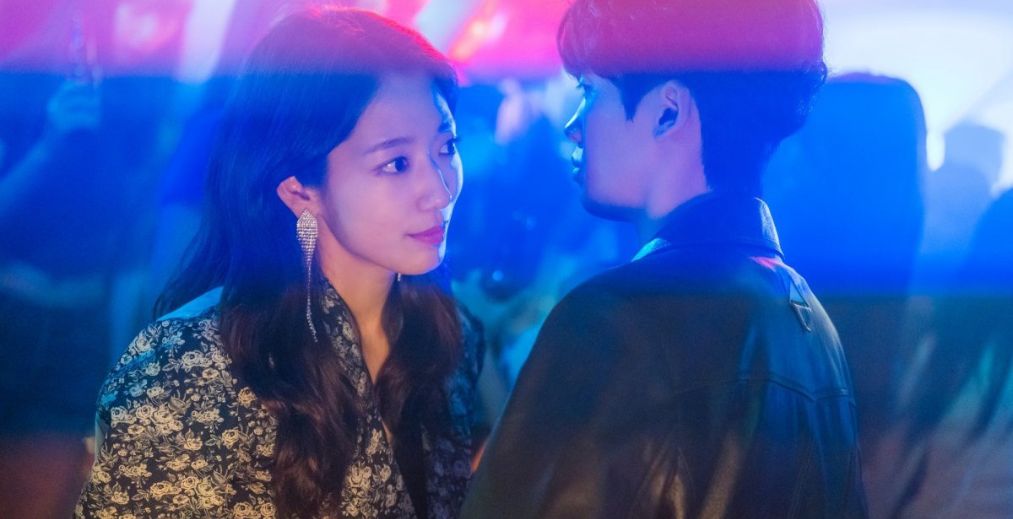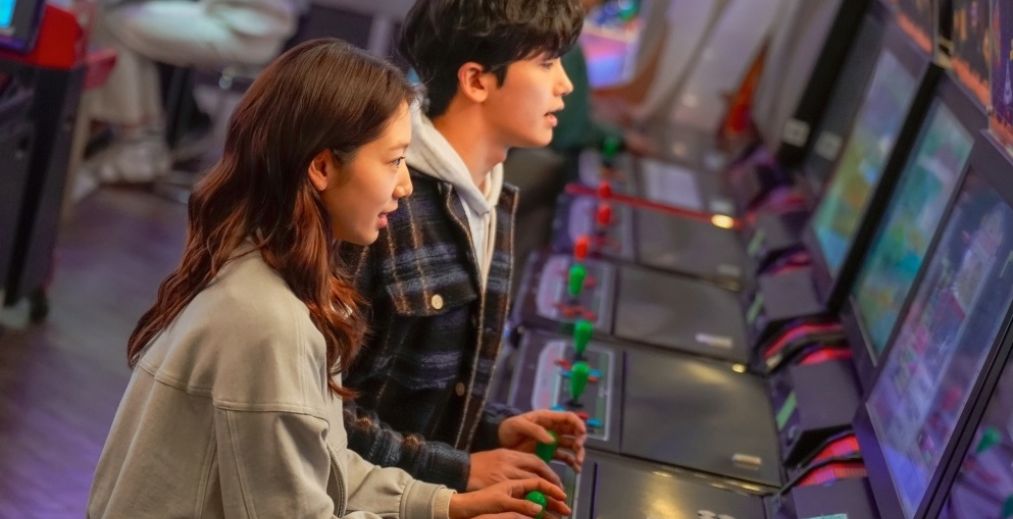With subjects like mental health and burnout and news that Doctor Slump would reunite The Heirs‘ co-stars Park Shin-Hye and Park Hyung-Sik, expectations were set high for the K-drama. Unfortunately, Doctor Slump gets lost in determining what the series wants to focus on. This creates pacing issues halfway through, resulting in a rather lackluster segue into the next major conflict. Where the series succeeds most is in its depiction of romance, with the core team of cast members dialing into key comedy moments for levity.
Starting in media res, Doctor Slump sets up the dramatic stakes for Nam Ha-Neul (Park Shin-Hye) and Yeo Jeong-Woo (Park Hyung-Sik). Ha-Neul’s work environment is so stressful, with backstabbers waiting around the corner at every turn, that she makes herself sick.
When she gets blamed for a superior’s mistake, the same superior who has been stealing her research, Ha-Neul rightfully blows up and quits. This is her rock bottom. She’s finally reached a point in her life where she doesn’t know what to do. Seeking answers for her emotional and physical state, she consults a psychiatrist. This is where she learns she is experiencing major depression.
The aftermath of this diagnosis features some realistically heartfelt and sad moments. Mental illness is taboo. In a society that values high achievement, there’s no easy way for Ha-Neul and her family to save face. Especially when her mother boasts about Ha-Neul’s academic and professional achievements for years. Ha-Neul and her family try to navigate and learn about the condition, with each person having different reactions to the news. It is these particular moments early on in Doctor Sleep that shine bright.
As for Jeong-Woo, his big slump involves a wrongful death case. After a high-profile client dies mid-surgery, the family goes after him with everything they’ve got. He loses his home, his practice, and – most importantly – his reputation. All his parents care about is not whether he is okay but if he can fix this situation so it doesn’t reflect on them. While he ultimately is found not guilty after sufficient evidence is found, Jeong-Woo suffers from PTSD from the surgery. What he doesn’t realize is that Ha-Neul is the one who will help him heal and vice versa.
A Kdrama can’t go wrong enemies-to-lovers…right?

Ha-Neul and Jeong-Woo are typical enemies-to-lovers characters. As revealed early on in Doctor Slump, both competed against each other in high school as top students. Jeong-Woo nearly lost his mind trying to keep up with Ha-Neul’s scores. This playful animosity between them is apparent from the beginning but, over the course of the series, levels out. The more they come to lean on each other, the more romance blossoms. In the end, they are each other’s salvation.
Doctor Slump is no slouch in the romance department. Ha-Neul and Jeong-Woo are initially a chaotic couple. But the transition from enemies to lovers reads well. The chemistry between Park Shin-Hye and Park Hyung-Sik is palpable. There’s no hiding the ease with which they play off one another.
Another couple in the series also shares the spotlight. Bin Dae-Yeong (Yoon Park) and Lee Hong-Ran (Kong Seong-Ha) are both single parents trying to do the best they can. After a misunderstanding early on in the series, the two slowly get to know each other. Theirs is a more mature romance. While there are some hilarious hiccups between the two, their romance finds its natural course.
Doctor Slump desires to explore mental health and its intricacies. These themes get lost due to haphazard and inconsistent execution. Mostly illustrated through expositional voiceovers from actors Park Shin-Hye and Park Hyung-Sik, there are moments of poignancy at the best of times.
At worst, these moments read as disingenuous. This is partially due to how they serve more as exposition rather than showing through the characters’ actions they’ve achieved these moments of clarity naturally. In the end, any messaging surrounding mental health and burnout feels spoonfed to its audience. It is something we should take as gospel without exploring the layers beneath.
Doctor Slump can’t help but feel out of sync.

There is also an issue with a lag between the completion of Jeong-Woo’s court case and the full reveal of Min Kyung-Min’s (Oh Dong-Min) treachery. With so much natural drama baked into Jeong-Woo’s legal issues, ending the court case almost halfway through creates a question of, “What’s next?” There is a focus on Jeong-Woo trying to move on and recover, but the pace slows down to a near-glacial halt. The middle part of the series takes on a slice-of-life sort of vibe, which, on its own, isn’t bad per se. But taking into account the greater picture, it is out of place.
Ultimately, Doctor Slump makes me question its identity. The series has so much that it dabbled with in exploration, but it almost didn’t know where it wanted to go. The story feels pulled in different directions despite the efforts of the cast to keep things grounded. If aiming to paint a convincing story of recovering from burnout, the expositional overlays say otherwise. If you have to tell the audience what the message should be, the storytelling isn’t successful.
Ultimately, Doctor Slump is as directionless as its leading character, Ha-Neul. It tries to figure out which course to take, with its primary messaging getting muddied in the process. In its romance and build-up of relationships, the series succeeds. However, in terms of creating a cohesive, tightly wound narrative, it does not make top marks.
Doctor Slump Episodes 1-16 are now available to stream on Netflix.
Doctor Slump
-
Rating - 6.5/106.5/10
TL;DR
Ultimately, Doctor Slump is as directionless as its leading character, Ha-Neul. It tries to figure out which course to take, with its primary messaging getting muddied in the process.





